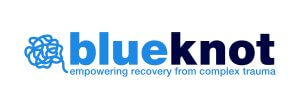Complex trauma—Information for Health Professionals
What do Front Line Health Professionals need to know?
When providing care through a trauma-informed lens it is important to be educated and curious, seek training and build your understanding of the widespread impact of trauma. It is also important to understand the potential paths for recovery and to know how you can connect survivors to the most appropriate support and services.
It is important to be able to recognise the signs and symptoms of trauma in individual clients, families, and staff. You can help by integrating your knowledge about trauma into policies, procedures, and practices in your workplace.
It is also crucial to actively resist re-traumatisation (i.e., avoid creating an environment that inadvertently reminds survivors of their traumatic experiences and causes them to experience emotional and biological stress). For example, consider your practice, manner and approach for any physical examination of a woman’s body. Ask her permission before touching her body and check in as you go along about how comfortable she is and if she needs to take time out at any stage. Also consider how she might feel about being separated from her baby or her partner if it is needed for a medical reason – allow her to be involved in decisions that relate to this and ensure she has a voice and feels heard and understood.
Responding to disclosure
- Listen carefully and try not to interrupt or ask questions as they speak, or if they need a moment of silence try not to act on the need to fill the empty space.
- Consider the courage it took for the person to share with you, it can be helpful to acknowledge this
- Be aware they may be sharing this for the first time, so it may be overwhelming for them
- Your reaction is important, non-judgemental space and unconditional positive regard can be healing and powerful
- Listen with compassion
Understand it is not your role to fix this, however you can encourage professional support. Be sure to access professional development and encourage your workplace to support others to do so. You also need to consider the impact on yourself after supporting a survivor and ensure you take the time you need to process what you have heard and felt. You may need to find a colleague to debrief and share with. Should it trigger any of your own story, reach out for support yourself and take the time you need to process and recover.
Tips for health professionals
- Listen, don’t offer advise
- Don’t share or overload the survivor with another’s story
- Don’t ask too many questions
- Acknowledge and validate what has been shared
- Support with help seeking and connecting to professional support
What do Therapists need to know?
Much of what we have covered for front line health professionals relates in the therapeutic space as well. However, as we are generally providing longer term support and more in-depth assessment and treatment there are further considerations.
It is important to explore specialised training that builds skill and knowledge in working with a trauma-informed lens to better understand the impacts and outcomes for people who experience complex trauma.
It is also crucial to consider vicarious trauma and your own selfcare.
What should therapists provide?
- Patient empowerment: Use your clients strengths to empower them in the development of their treatment
- Choice: Inform your clients regarding their treatment options. Involve them in the choice of the treatment options they prefer and provide psychoeducation that will support this process.
- Collaboration: Maximising collaboration both with your client, their families and any other healthcare providers (such as Midwives, Obstetricians and Maternal Child Health Nurses) will support their healing and wellbeing.
- Safety: Developing health care settings and activities that ensure clients physical and emotional safety. This may also involve communicating with other services in the clients care, or empowering them to voice their own needs in spaces such as antenatal and birth settings; and
- Trustworthiness: Creating clear expectations with clients about what proposed treatments entail and what options they have. As well as exploring who can provide services, and how care will be communicated and provided.

This information was developed in partnership with the Blue Knot Foundation.
Blue Knot Foundation is Australia’s National Centre of Excellence for Complex Trauma – repeated violence, abuse or neglect experienced across the life cycle. Blue Knot provides trauma-informed phone counselling and workshops to adults experiencing complex trauma and their supporters.
Its website has extensive resources to support healing and recovery. It also trains and builds and supports practice for people working in diverse roles with trauma clients. Visit their website here.
